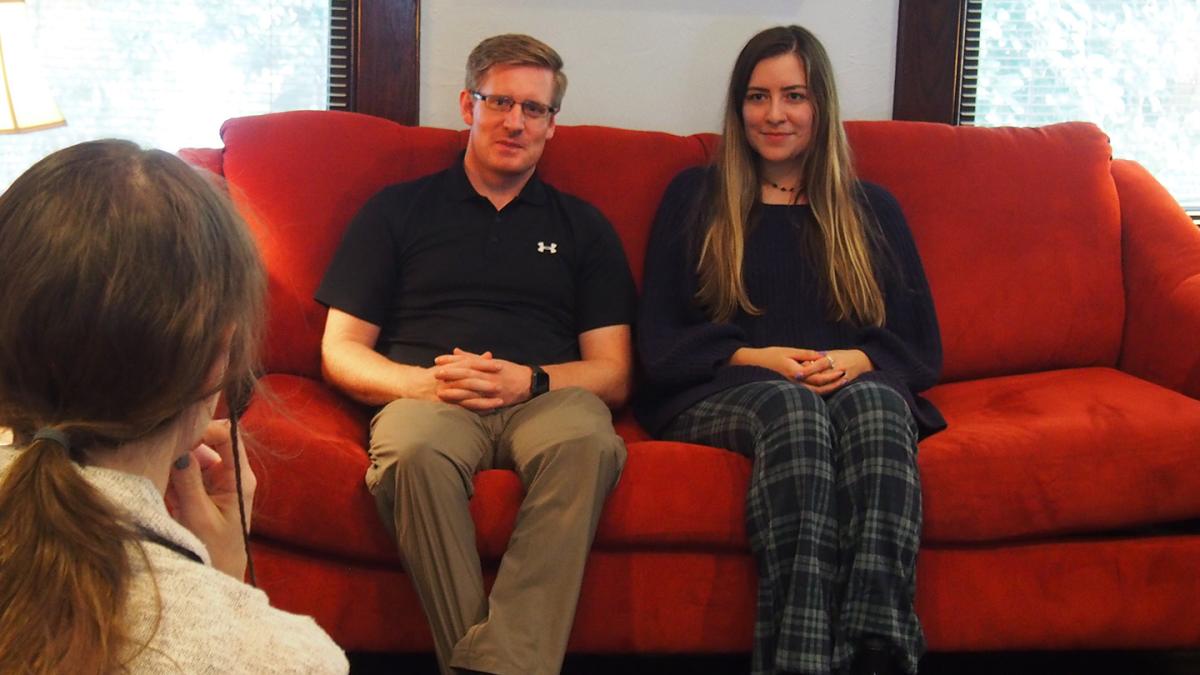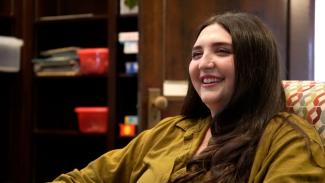Marriage and Family Therapy (MFT)

The doctoral program in Marriage and Family Therapy (MFT) has a long and rich history. The program addresses family processes and empirically-supported relational interventions for today’s diverse families through the engagement in programmatic research and advanced clinical preparation.
Our emphasis is on providing the training necessary to become a scholar well-equipped for an academic position while advancing clinical expertise. The program is designed to produce MFT leaders who are invested in contributing to scientific knowledge through sophisticated programs of research.
The Marriage and Family Therapy Program at Florida State University (FSU) is accredited by the Commission on Accreditation for Marriage and Family Therapy Education (COAMFTE), 112 South Alfred Street, Alexandria, Virginia 22314, (703) 838-9808, coa@aamft.org.
FSU is accredited by the Southern Association of Colleges and Schools, Commission on Colleges.

Our strengths involve research on family processes, distressed families (e.g., families involved with the foster care system, families experiencing homelessness, military families), intimate relationships, mindfulness and attributions. Our expertise includes implementing and evaluating best practices in psychoeducation and therapy.
The MFT program is well integrated into the Department of Family and Child Sciences. Doctoral students have access to the entire departmental faculty as part of their education and professional development. Students select their major professor and supervisory committee based on areas of scholarly interest and expertise. The doctoral supervisory committee provides mentorship throughout the doctoral experience. Doctoral students have access to computer laboratories, statistical software, and on-campus and remote access library resources.

The program’s clinical training is geared toward advancing students’ clinical competencies and supervisory skills necessary to meet the needs of diverse individuals, couples, and families. During the first two years of doctoral studies, students provide therapy at the Center for Couple and Family Therapy (CCFT). The CCFT is an on-campus facility equipped with state-of-the-art technology and is a participating member in the Practice-Research Network clinical assessment consortium. Therapists at the CCFT are supervised by licensed MFT faculty who are AAMFT-approved supervisors. Supervision operates under a clinical practicum framework involving didactic content, group and individual supervision, live observation, video, and case report.
After the completion of requisite CCFT clinical hours, doctoral students engage in an internship experience in community mental health agencies, hospitals, and clinical research settings. Students are encouraged to select internship placements that align with their area of scholarship.
If you meet the below requirements, we encourage you to apply to the program.
Attainment of these minimum requirements does not guarantee admission to the program. Admission decisions are based on assessments of all aspects of the student’s application materials. The department reserves the right to increase standards if warranted by enrollment limitations and by the number and quality of applicants. Financial aid is a separate process from the admission to a graduate program.
Before you submit your online application and pay the application fee, please carefully review the required documentation in the Application Process section.
| Semester | Deadline |
|---|---|
| Fall | December 1 |
| Spring | No admission |
| Summer | No admission |
This program admits only in the fall semester. All application materials must be received by the deadline posted and only complete applications will be reviewed. Applications are not deferred; if you decide to apply for a different term or major, you will need to start a new application.
Admission to the graduate program is term specific. Therefore, if you are unable to attend the term in which you were admitted, you will need to reapply for a future term.
All items below must be on file, and the fee paid, before an application is considered complete and ready for review. We encourage you to complete your application early.
Submit electronic transcripts to:
Send paper transcripts to:
Florida State University
Office of Graduate Admissions
222 S. Copeland Street, 314 Westcott Bldg.
Tallahassee, FL 32306-1410
USA
International Students:
The advertised MFT Ph.D. program completion length is four years. Minimum program completion length is 3 years. There are a number of advantages to staying the fourth year and these advantages are discussed with each student on an individualized basis.
Students without a COAMFTE-accredited master’s degree can take up to five years to complete the MFT Ph.D., due to extra coursework and clinical contact hours needed.
All coursework must be completed within 5 years of enrollment in the program. When students have completed coursework, they must then complete a preliminary examination with an oral defense. Upon successful completion of the exam, the student enters into “candidacy.” The period of candidacy is limited to 5 years. Thus, the absolute maximum time to complete the MFT Ph.D. program is 10 years.
Students are only admitted to the doctoral program following completion of a clinical Master’s program degree.
The doctoral program requires a minimum of 86 credit hours, of which 21 are clinical / supervision and 24 are dissertation.
For questions about the application process:
HDFS Grad Admissions
HDFS-grad@fsu.edu
850-644-4048
Graduates of mental health masters programs that are not accredited by the Commission on Accreditation in Marriage and Family Therapy Education (COAMFTE) must complete specified coursework (the “Standard Curriculum”) before taking the preliminary doctoral examination. (Additional information on the “Standard Curriculum” can be obtained from the director of MFT program)
Before students enroll for coursework in their first semester, the clinical faculty reviews their master’s transcript to determine whether additional coursework is needed. Based on the review process, students prepare an initial “program of study” before registering for their third term that includes these additional required courses which may not be counted toward meeting the required minimum credit hours for the doctoral degree.